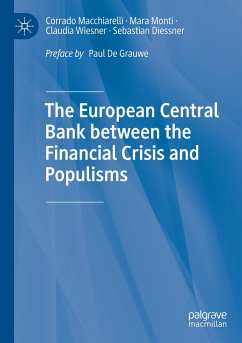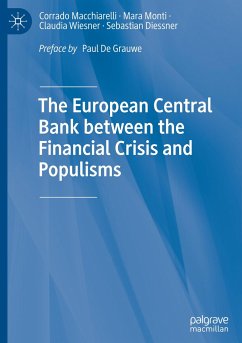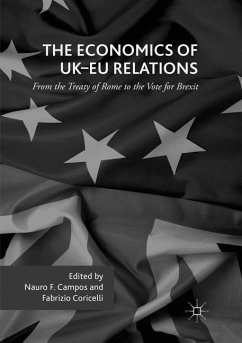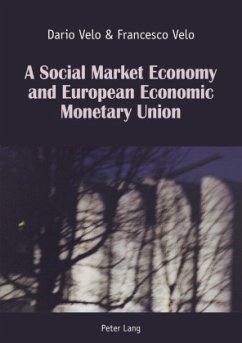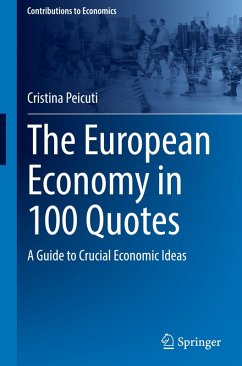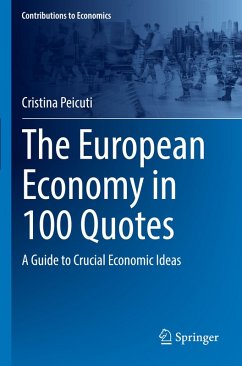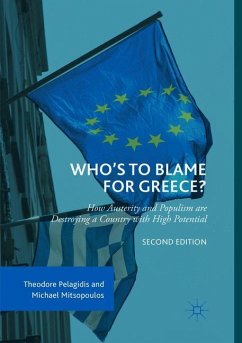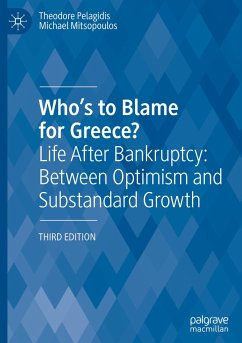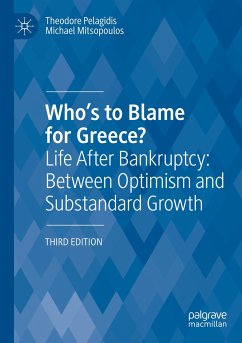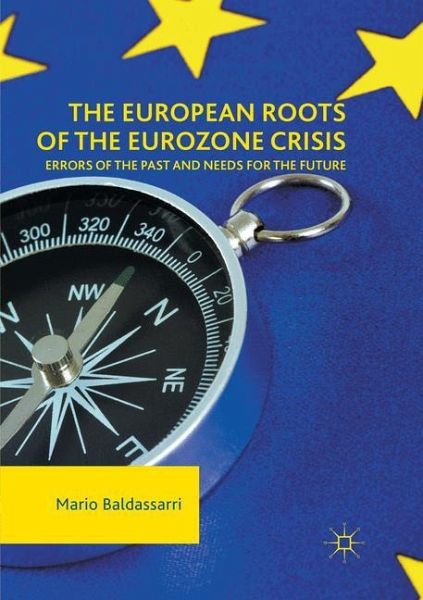
The European Roots of the Eurozone Crisis
Errors of the Past and Needs for the Future
Versandkostenfrei!
Versandfertig in 6-10 Tagen
91,99 €
inkl. MwSt.
Weitere Ausgaben:

PAYBACK Punkte
46 °P sammeln!
This book examines the Eurozone crisis in light of theoretical and empirical evidence. The first half explores specific theoretical contributions within a framework of growth theory models to examine the two major pillars of the European construction, the European Central Bank and the Maastricht Treaty, and seeks to explain why they are theoretically wrong. The second half presents results of counterfactual simulations using the Oxford Econometric model and estimates what the Eurozone has lost in terms of economic and social cost from 2002 to 2014 as a consequence of the super-evaluation of th...
This book examines the Eurozone crisis in light of theoretical and empirical evidence. The first half explores specific theoretical contributions within a framework of growth theory models to examine the two major pillars of the European construction, the European Central Bank and the Maastricht Treaty, and seeks to explain why they are theoretically wrong. The second half presents results of counterfactual simulations using the Oxford Econometric model and estimates what the Eurozone has lost in terms of economic and social cost from 2002 to 2014 as a consequence of the super-evaluation of the Euro and the Maastricht Treaty parameters being mistakenly fixed and pursued. Finally, the author supports the urgent need to refund the European Union, up-dating The Maastricht Treaty and the ECB statute to build three concentric circles: the USE (United States of Europe), the EU (European Union), the EAFTDA (Europe/Africa Free Trade and Development Area).



